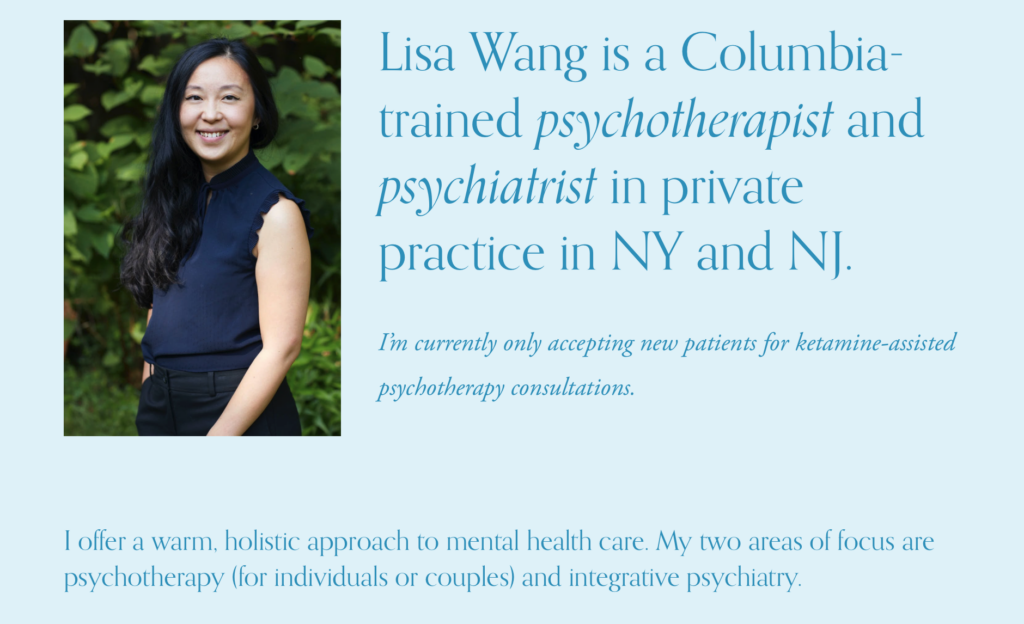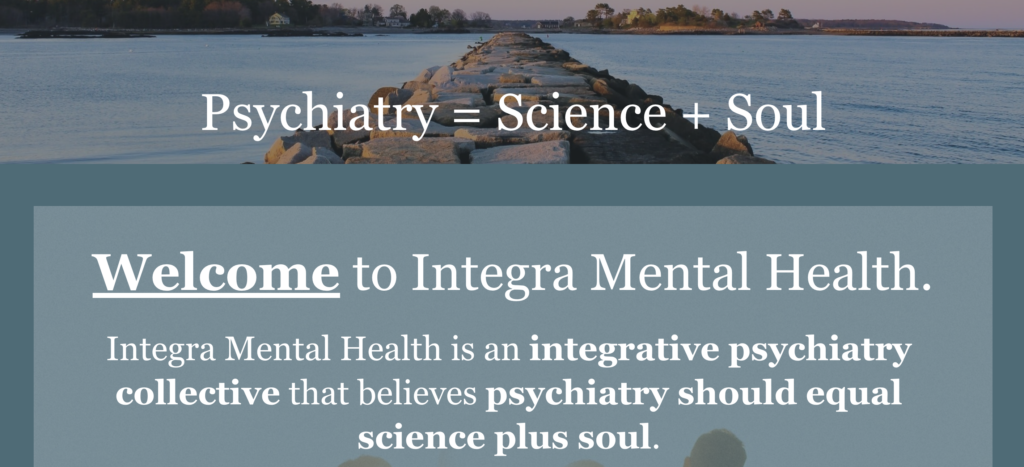Are you a psychiatrist who feels uninspired, unmotivated, and stuck in a cycle of psychiatry burnout? It might be time for a new career path.
Is your calendar booked in back-to-back 15-minute increments all day, every day? Do you have days where you have 2-3 new patient intake appointments? Are you able to spend the time with each patient that you, THE expert in patient care, believe is necessary?
You may read these examples and think, “Yeah, I’m just burned out. Everyone is burned out.”
The truth is, there is a rising level of frustration and dissatisfaction among providers working in bureaucratic systems, and surprisingly, it is not caused by burnout…
…But instead by moral injury.
Are Psychiatrists Burned Out, or Suffering From Moral Injury?
The American Psychiatric Association (APA) now reports that 2 out of 5 psychiatrists experience professional burnout — that’s almost half of all practicing psychiatrists.
Let that sink in.
Almost half of psychiatrists are experiencing burnout.
So what does that mean exactly?
According to a recently published New York Times article, The Moral Crisis of American Doctors, it might be a bit more complicated than just “burnout.”
The article argues that the frustration and exhaustion that psychiatrists are feeling is actually not caused by psychiatry burnout, but instead by moral injury.
According to the article, psychiatry burnout or moral injury is a consequence of “the demands of administrators, hospital executives and insurers forcing them [doctors] to stray from the ethical principles that were supposed to govern their profession.”
Basically, moral injury is caused by the lack of autonomy in treating patients the way that they need to be treated and in doing what we, psychiatrists, are skilled at best.
What Psychiatry Burnout Looks Like:
- Being allotted 15 minute appointment times for patients who need 1 hour
- Having 3+ intakes booked with less than 1 day of notice
- Spending hours following stringent notes procedures, instead of using that valuable time to help patients or grow your clinical skillset
- Push back from insurance companies who won’t authorize your treatment plans
- Push back from hospital admin staff on the level of care you’re able to provide, “we can’t fit that into a CPT code”
- Feeling like a “cog in the machine” with zero control over your career
- Given no time to have noncontroversial conversations with patients about nutrition, exercise and sleep
Moral injury is what drives the high burnout rate for psychiatrists.
Oh, and what about your hourly rate?
Take a quick minute to do a simple calculation – your annual salary divided into 52 weeks. Take that number and divide it by the number of hours you clock each week.
Sure, a $275,000 salary looks good on a piece of paper, but when you’re working 70 hours weeks, does $75/hour really justify your credentials and expertise?
According to the National Library of Medicine, “high work demands without adequate resources, poorly defined roles of consultants, responsibility without authority, inability to effect systemic change, conflict between responsibility toward employers vs. toward the patient, isolation of consultants in community mental health teams and lack of feedback were identified as sources of stress [in psychiatrists].”
The thing is, we as providers don’t mind working long hours if it means we get to help our patients. Hard work doesn’t scare us – we went through medical school (or other extensive psychiatric training) knowing exactly what we signed up for.
However, what we can’t stand is being forced to act in the best interest of the bureaucratic system, prioritizing profits over acting in the best interest of our patient.
Here’s the truth:
We are taken aback not by the long work weeks, but instead by a broken healthcare system that makes it practically impossible to properly care for our patients and that prioritizes profits over patients.
What Psychiatrists Are Saying About Burnout and Moral Injury
In my psychiatry career mentorship program I have a private community forum for psychiatric providers to network, connect, relate, and share resources.
When the NYT article on The Moral Crisis of American Doctors was circulated on my forum several members jumped in to share their experience with burnout and moral injury while working in traditional healthcare systems.
Here’s what they had to say:
While it may seem impossible for you to change a whole system, we must remember that to make a big impact, you need to start with small steps.
Perhaps if enough clinicians opt out of the broken healthcare system, the system may have to change and adequately compensate psychiatric providers for the important work we do.
And we’re already starting to see this happen.
Psychiatrists that have established and well-paying jobs are leaving these bureaucratic systems and building their own private practices.
How do I know this?
Because they are applying to my mentorship program, The Dream Practice Academy, and seeking guidance on how to build a private practice (and learning high-yield integrative psychiatry in tandem) that puts the patient first, not corporate profits.
How Can You Escape Psychiatry Burnout and Moral Injury?
Whether you’re a psychiatrist that feels burned out by the system, or want to prevent psychiatry burnout before you start your career, there are measures that you can take to improve your mental wellbeing and increase your sense of professional fulfillment.
1. Set boundaries between your professional and personal life
Due to the nature of our profession, it can be difficult to set boundaries. This can apply to our relationships with our patients, as well as in our personal lives.
It’s common for us to have the mindset that we HAVE TO say “yes” and help people, even if doing so is detrimental to our own mental health. You just have to remember that failing to set boundaries is exactly what contributes to psychiatry burnout and moral distress.
2. Take the time to clear your mind and focus on your hobbies
We all know the importance of self-care – we tell it to our patients all the time! It’s time we start practicing what we preach and take the time to do what we love outside of work, too.
This can mean being active and spending time outdoors or tapping into your creativity using painting or drawing. Whatever your hobbies are, take the time to do something that will clear your mind and help you de-stress. Being able to disconnect from work is crucial to maintaining our sanity and having the mental capacity to help our patients in the way that we strive for.

3. Start an integrative psychiatry private practice and achieve complete career autonomy
If you want to ultimately avoid psychiatry burnout, and leave the rigid system that limits your ability to grow as a clinician, the best thing you can do is start your own private practice.
The way I view it is that there is an innate desire for providers to do everything in our power to get a patient better. And there is a vast population of patients who desperately want more than just 15 minutes of your time.
The Future of Psychiatry
This is why I believe that the future of psychiatry is,
- Solo practitioners — who remove the middleman from patient care, so that they can provide the kind of care that inspired us to go into psychiatry in the first place
- Integrative psychiatry — where we use all healing modalities – traditional and complementary – in concert to give our patients the best outcomes
What so many psychiatrists don’t realize is that they can have unlimited career potential, and are able to overcome psychiatry burnout, when they work for themselves instead of for someone else.
Unlimited potential to make a profound impact on their patients’ lives.
To have complete autonomy over their work.
To choose the types of patients they work with, and how much they charge.
To expand their toolbox of treatment modalities beyond just writing a script.
But all of this requires us to step outside of the very system we were all trained to be part of. And that’s not easy – but it IS worth it.
The Role of an Integrative Psychiatrist Entrepreneur
This is a role I’ve been in since graduating residency, and one that has allowed me to offer a level of care to my patients that I’m proud to provide and that truly gets them feeling better faster, while also being completely autonomous in my practice.
But the main reason I love this role is because in an increasingly complex world, the overly simplistic symptom-medication model of traditional psychiatry is one of the most pressing challenges of our field.
Just think about it.
There’s so much more you can offer patients above just medication alone.
You can take into account all of the biological, psychological, and spiritual factors that affect someone’s mental health, and you can explore all facets of healing to not just treat symptoms, but to alleviate suffering.
Imagine owning your own private practice where you could:
- Offer longer appointment times that are designed for the patients to tell their whole story
- Develop treatment plans that honor patients’ belief systems
- Educate patients that biology isn’t the only contributing factor to mental illness
- Work with your DREAM patients to optimize their lives with nutraceuticals, psychotherapy, mind-body approaches, lifestyle coaching, and many others.
All while having complete autonomy over your work, achieving financial abundance, avoiding psychiatry burnout, and helping your patients truly thrive.
(Yes, it really is possible!)
A New Career Path: The Integrative Psychiatrist Entrepreneur
Most providers stay in broken systems because they feel they have no better options, or don’t have the skill sets or mental frameworks to start a business.
We believe that we have to grind, struggle, and “put in our time” until we have enough experience to go out and do it on our own.
We have this limiting belief that we can’t learn on our own and that we must follow a rigid training standard first.
- We need the extra credentials
- We need to do the fellowship
- We need to learn everything that there is to learn before we even consider presenting it to a patient.
But I’m here to change this narrative.
How To Transition Your Career Into Private Practice With Business Experience or Integrative Psychiatry Training
I know this because it’s exactly how I carved my own path to becoming an integrative psychiatrist entrepreneur.
I didn’t do an integrative psychiatry fellowship – I learned integrative psychiatry in real-time with the patients who were sitting in front of me.
I didn’t go to business school, but I did read hundreds of books, invested in training, and hired mentors to learn the ropes.
This is how I learned integrative psychiatry and built my cash-pay private practice, and how I now coach psychiatric providers just like you to do the same thing.
Just like Lisa Wang, M.D.


And hundreds of other psychiatric providers who are part of my mentorship program.
It’s now my role to share this information with you — to show you what’s possible and unlock your potential as a clinician.
Is Private Practice Right For You?
I am always honest about both the pros and the cons of running a private practice, so here are a few:
Cons: Requires a ton of responsibility and organization
- Figuring out scheduling
- Being in charge of billing
- Responding to emails
- Marketing to find your own patients (the system won’t do it for you)
- Coordinating vacation coverage
- No corporate W2 insurance/benefits
The good news is that these are not insurmountable obstacles to figure out, and in my opinion, the pros far outweigh the cons.
Pros: Autonomy to care for patients on your terms and the ability to actually help them:
- Longer appointment times
- Flexibility and autonomy over your schedule
- Freedom to not accept insurance
- Freedom to practice with an evidence-informed approach
- Ability to build meaningful rapport and relationships with your patients
- Higher income working fewer hours (remember the hourly rate exercise from earlier…)
The independence and significance that running my own practice brings into my life makes the tradeoff well worth it.

Unlock Your Career Potential and Leave Psychiatry Burnout Behind
If you feel aligned with this philosophy and vision, then I want to propose a new roadmap to you. One that you’ve probably never seen before.
First, learn integrative psychiatry WHILE building a private practice.
Second, start seeing cash-pay patients on the side while you cut back hours at your insurance-based job.
Third, evolve your career to full time integrative psychiatrist entrepreneur!
You see, this isn’t an all-or-nothing decision. You don’t have to fully quit your job and start from scratch. You also don’t have to dedicate a year to training before you can get started.
Learning, growing, and evolving happens in stages.
If you’re ready to,
- Say goodbye to psychiatry burnout
- Offer a level of care that transforms your patients’ lives
- Have complete autonomy, financial abundance, and joy in your work
- Capitalize on your unique strengths while attracting your DREAM patients who you love working with
- Make MORE MONEY while WORKING LESS hours
Then I invite you to take the first step.
Join My Free Dream Practice School
Ready to ditch the broken healthcare system and unlock your full career potential? Join my free community and start learning what it means to be an integrative psychiatrist entrepreneur with your own practice – and how to make it happen. You’ll even get access to some of my protocols!
You can also follow me on Instagram @thepsychiatrymentor, and on YouTube The Integrative Psychiatry Private Practice Hub for more valuable private practice and integrative psychiatry tips and resources.
I hope to connect with you soon!
Free resource
Want a clear, step-by-step plan for building your dream private practice (without the overwhelm)? Grab the free Private Practice Roadmap by answering a few quick questions below. It’ll help you get clarity on your next best steps, avoid common early mistakes, and start creating a practice that actually fits your life and values.




[…] a previous blog post, I wrote about which factors contribute to moral injury among psychiatric providers, and how you […]